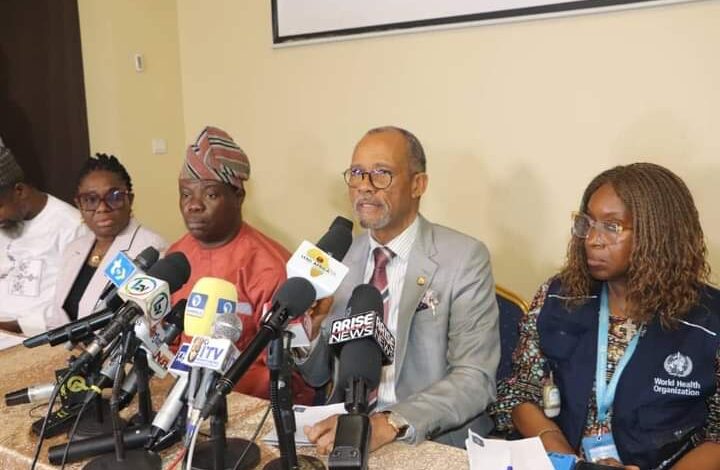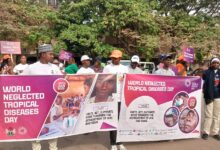
In a proactive response to the growing global concern over the Mpox virus, particularly the newly identified Clade 1B variant, the Lagos State Government has unveiled a series of comprehensive public health initiatives.
This is according to a post on the official X handle of the Lagos State Government on Wednesday, August 28, 2024.
It informed that, during a media briefing held at Protea Hotel, Alausa Ikeja, the State Commissioner for Health, Prof. Akin Abayomi outlined the state’s multipronged strategy to shield Lagos from the emerging threat.
Prof. Abayomi announced three significant milestones as part of Lagos State’s public health strategy against Mpox. The first was a robust stakeholder engagement involving experts from various sectors to discuss Mpox and its management, both locally and globally.
The second milestone was the activation of an Emergency Operations Centre (EOC) specifically dedicated to monitoring and addressing the Mpox outbreak, with a particular focus on the Clade 1B variant.
The third milestone was the launch of a statewide public health awareness campaign aimed at educating residents about the risks associated with Mpox and preventive measures they can take.
The Commissioner emphasised the current concern over the Clade 1B variant, which is rapidly spreading across Central Africa, particularly in the Democratic Republic of Congo (DRC), and has now reached neighboring countries like Cameroon, Rwanda and Burundi.
“This variant is distinct from the indigenous Clade 2 variant, which has been detected sporadically in West Africa. Although Lagos has no active cases at present, the risk posed by the more aggressive Clade 1B variant remains a significant concern due to Lagos’s extensive travel connections. The World Health Organisation (WHO) has declared the outbreak in the DRC a Public Health Emergency of International Concern, highlighting the need for a coordinated global response”, he said.
The Commissioner noted that Lagos State was taking proactive steps, drawing on its experience with past health crises like Ebola, COVID-19, cholera and Lassa fever. According to him, these measures aim to prevent the introduction of the Clade 1B variant into Lagos, which could have severe health and economic implications.
He explained that Mpox, like smallpox and cowpox, is a zoonotic disease that initially spreads from animals to humans, particularly through rodents and monkeys. Human-to-human transmission occurs through close contact, with the Clade 1B variant showing a higher transmission rate, especially through sexual contact.
Prof. Abayomi warned that while there are currently no active Mpox cases in Lagos, the state must remain vigilant against the potential importation of this aggressive variant.
He disclosed that a mini-symposium on Mpox which was held before the media briefing, featured insights from global health experts, including representatives from WHO, UNICEF, the Nigeria Centre for Disease Control (NCDC), Nigeria Institute of Medical Research (NIMR), LUTH and LASUTH.
“These experts discussed the risks posed by the Clade 1B variant to Lagos and the steps needed to create a biological shield against the virus. The collective goal is to ensure that Lagos is fully prepared to manage any potential outbreak and minimise its impact”, Prof. Abayomi said.
Meanwhile, the Director of Epidemiology, Biosecurity and Global Health in the Lagos State Ministry of Health, Dr. Ismail Abdus-Salam provided detailed information on the symptoms of the Clade 1B variant.
He highlighted the severity of the rashes caused by this variant, particularly those that appear in the genital area, which are more painful and pronounced than typical Mpox rashes.
Dr. Abdus-Salam emphasised the critical need for early identification and containment of Mpox cases to prevent the spread of the Clade 1B variant within Lagos. “The state’s public health systems are on high alert, ready to act swiftly to protect residents from this virulent strain”, he said.






